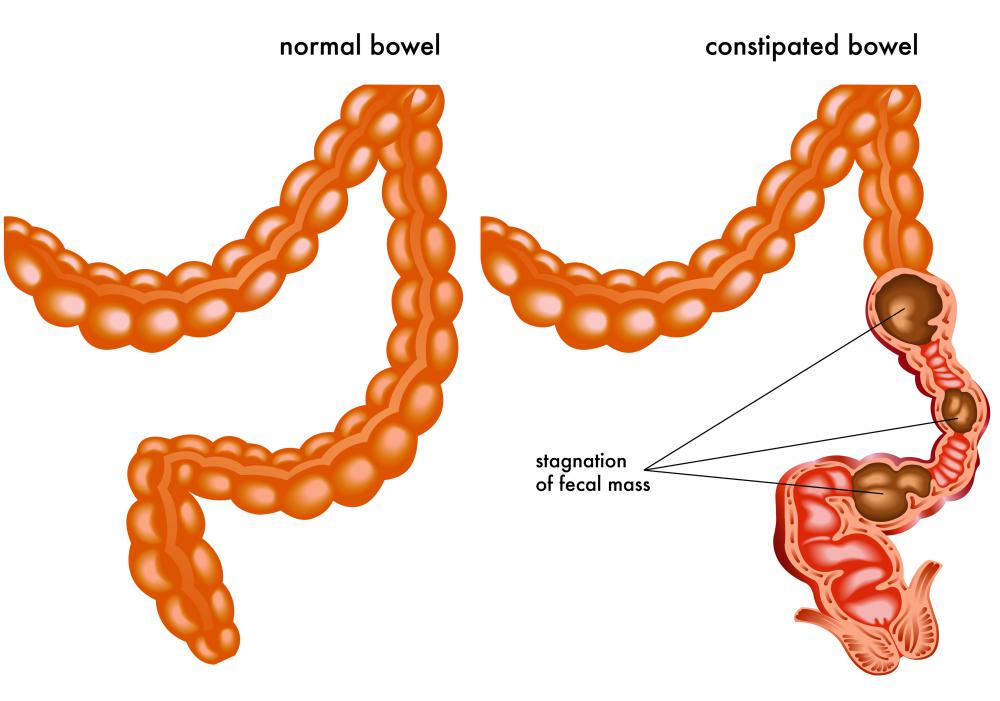At WiseGEEK, we're committed to delivering accurate, trustworthy information. Our expert-authored content is rigorously fact-checked and sourced from credible authorities. Discover how we uphold the highest standards in providing you with reliable knowledge.
What are the Most Common Femoral Hernia Symptoms?
Many femoral hernias do not have symptoms beyond some discomfort in the groin. If they do manifest themselves, the most common femoral hernia symptoms are a bulge or knot by the thigh, which may progressively become enlarged and swollen, or generalized pain in the groin area. Some patients may also experience fever, nausea, and vomiting. All femoral hernia symptoms are primarily the reaction of the body to the pressure caused by abdominal organs straining to leave their muscular cavity.
Of the most common femoral hernia symptoms, the most easily detected is the visible bulge that the small intestine makes in the groin area, near the upper thigh. The abdomen is surrounded by an expanse of thin muscle which keeps its organs together. Hernias grow when there is an opening in that wall, either from a tear or a particularly thin and weak spot in the abdominal muscle. The organs of the abdomen then press through the hole, causing the protrusion that is the hernia.

Other femoral hernia symptoms include increased pain near the groin area as the hernia grows and swells. Men may experience scrotal swelling. Often these and other symptoms of femoral hernia only appear when strain is put on the body by strenuous activity such as lifting.
There are more serious femoral hernia symptoms which require emergency medical attention. Nausea, vomiting, and severe pain in the abdomen could be a sign of a blocked intestine. Hernias that become so painful that they cannot be pressed back into the abdomen need immediate attention. It is also serious if the hernia darkens or takes on a red or purple hue.

When tissue in the femoral hernia gets stuck, emergency surgery is also required. In most cases it is the intestine that becomes stuck or incarcerated. It may also become gangrenous or strangulated in the worst cases. These conditions are typically accompanied by severe abdominal pain.
Femoral hernias are most common in women. In general, they are caused by excessive strain in the abdominal and groin area. Chronic sufferers of constipation or coughing are at a higher risk of femoral hernias. The pressure heavy lifting and obesity put on the body can also be a cause. Men with an enlarged prostate can get the condition due to the constant strain of attempting to urinate.

The most effective way to prevent a femoral hernia is to avoid straining the body. Managing constipation and keeping a healthy weight are important. Practicing proper lifting techniques — lifting from the legs instead of the back or arms — is also an effective preventative measure.
AS FEATURED ON:
AS FEATURED ON:
















Discussion Comments
Thank you for sharing the information regarding femoral hernia. I think heavy lifting is one of the main reasons for this. Femoral hernia is mostly treated through open or laparoscopic surgery. The treatment method is normally prescribed on the basis of our health condition. My friend was diagnosed with femoral hernia last year and her surgeon has performed laparoscopic surgery for treating it.
Post your comments